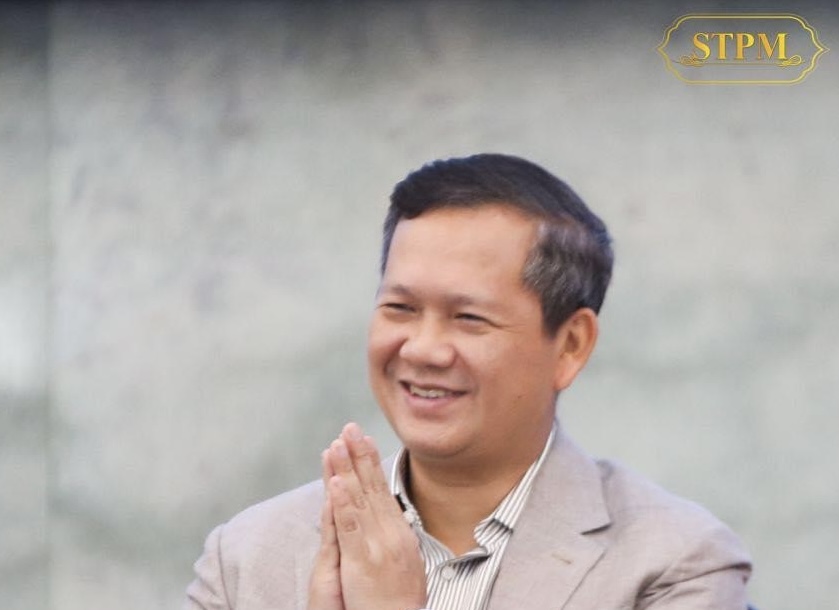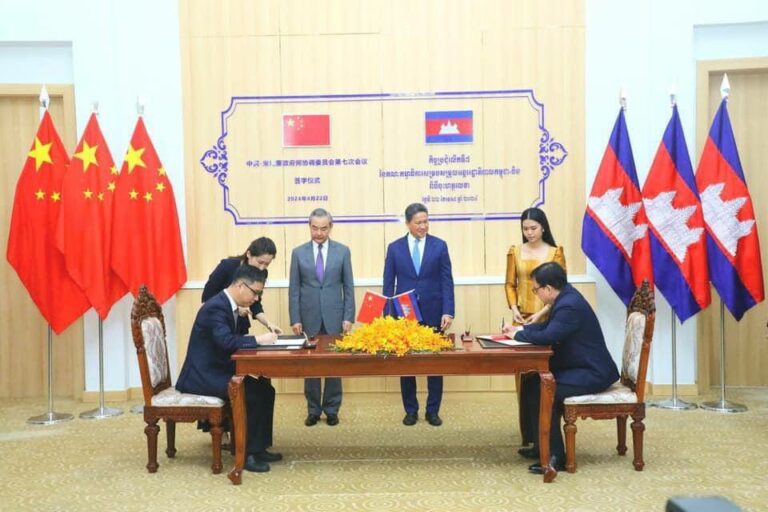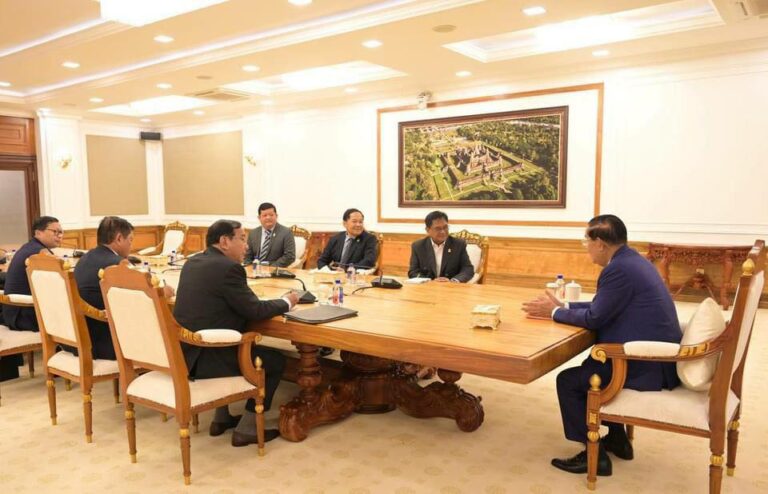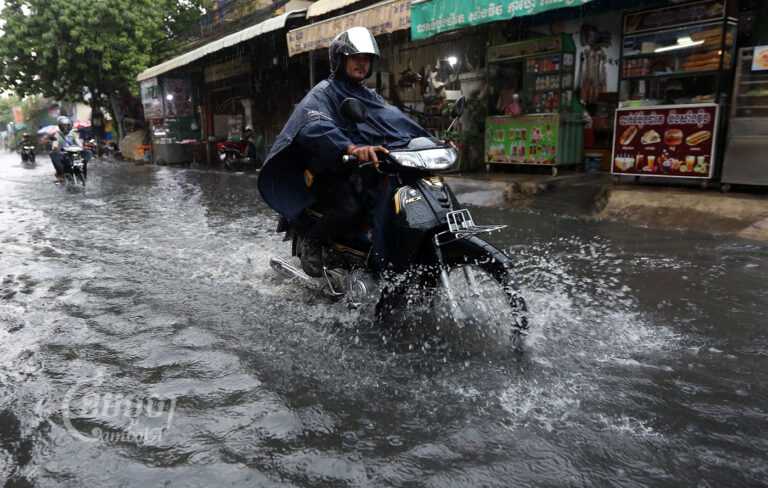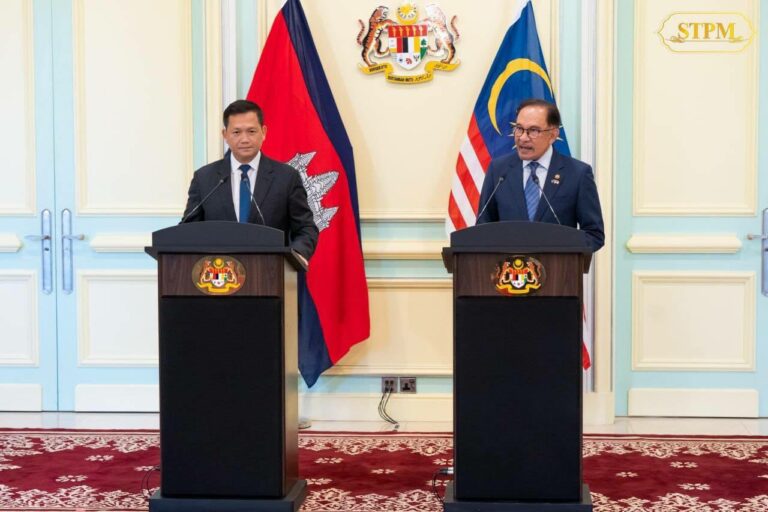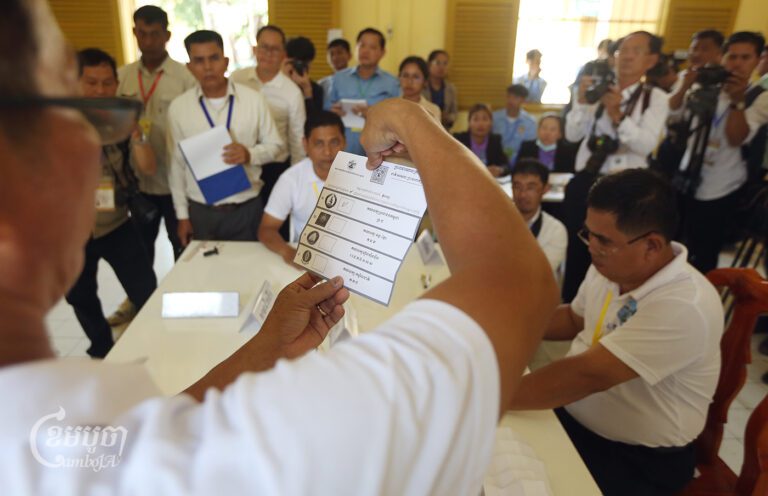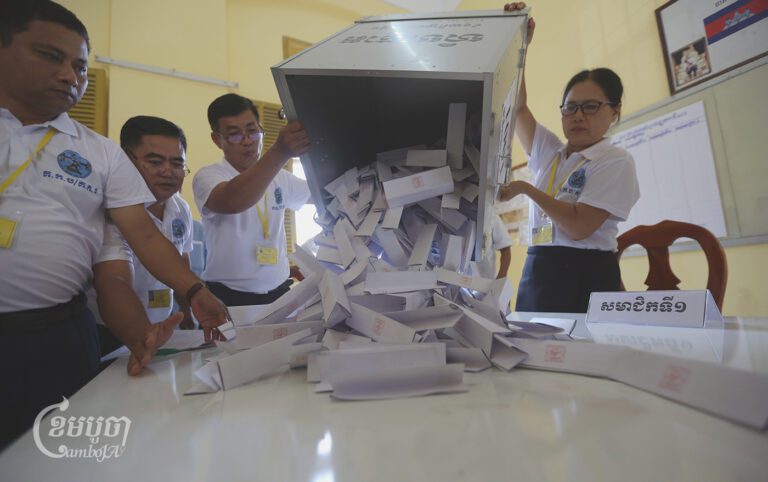Prime Minister Hun Manet was voted in as vice president for the ruling Cambodian People’s Party (CPP) during its two-day meeting on December 9, which also saw the appointment of senior leaders’ children to key committees.
Experts have noted that generationalistic leadership might not be able to tackle the conflicts of interest, especially corruption which is concerning.
According to a statement by CPP on Sunday, the congress elected Hun Manet as party vice president and an additional 496 members to the central committee, bringing the total number of central committee members to 1,312. Another 23 new members were appointed to the standing committee, making up 58 members in total.
The additional committee members feature the children of CPP stalwarts, who were part of the succession list, long identified in a move to transfer power from parents to offsprings for cabinet posts.
Some of the children who were promoted include ministers Sar Sokha, Tea Seiha, Peng Ponea and Say Sam Al, as well as Manet’s brother Hun Many, and National Bank of Cambodia governor Chea Serey. Also promoted was Vong Sauth, son-in-law of former National Assembly president Heng Samrin, to the post of second vice president of the National Assembly.
Other “CPP elites”, such as tycoon Ly Yong Phat, Foreign Affairs Minister Sok Chenda Sophea, Council Minister Vongsey Vissoth, Supreme Court president Chiv Keng, Royal Army commander Mao Sophan, Bodyguard unit chief Hing Bunheang and National Police chief Sar That also received an upgrade in the party.
When asked if the promotion was related to a succession among family members, CPP spokesperson Sok Eysan confirmed the observation. “[It’s] because we know CPP has patriotic elites from previous generations who are already old, so [we] need adequate time to prepare for the next generation to take over [leadership],” he told CamboJA on Monday.
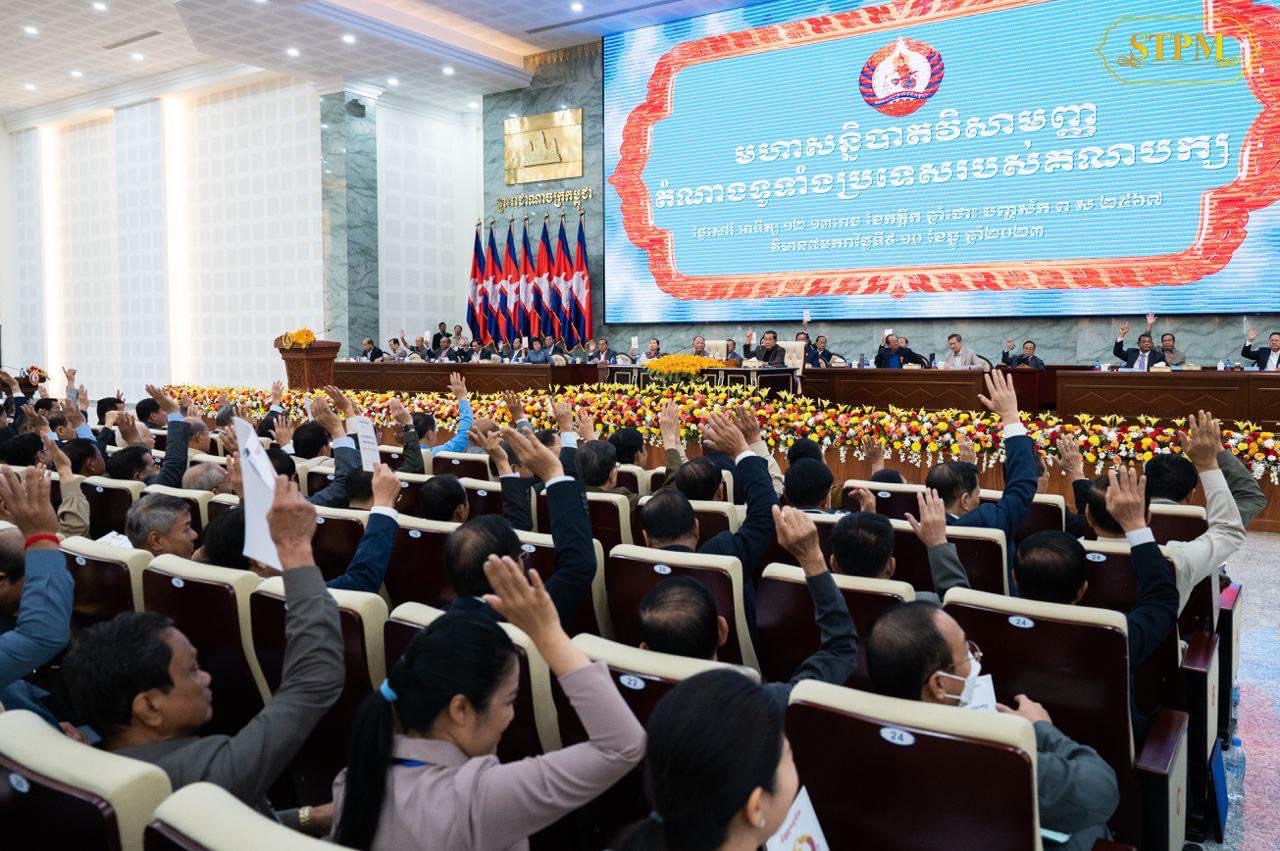
Regarding Hun Manet’s appointment as vice president despite having just taken over as prime minister, Eysan said, “[we] need to empower him [so that he can] run [the party and government] smoothly. It will be more successful for the party [and government] as the structure has to be consistent.”
He added that the majority of deputy ministers, senior ministers and ministers are members of the standing committee, who are due to carry out governmental duties as a succession in leadership in the executive.
With Hun Manet’s new role, the CPP now has five vice presidents, including Sar Kheng, Say Chhum, Tea Banh and Men Sam An, while former premier Hun Sen sits as the party president.
As the election ended, Hun Manet left for a two-day official visit to Vietnam starting Monday to strengthen relations between both countries.
Meanwhile, political analyst Meas Nee expressed concern over the promotion of families, linking it to nepotism, as issues cannot be effectively tackled due to conflicts of interest.
“I do not object [nepotistic appointments] but I am concerned whether the government will resolve the conflict of interest, and who would address corruption as our country is riddled with corruption,” Nee said.
“When the government is controlled by families, more or less the law enforcement will not be effective,” he added.
Although Cambodia saw a slight improvement in Transparency International’s corruption index for 2022, it remains among the most corrupt countries globally.
Kimsour Phearith, spokesperson of opposition Candlelight Party, said they do not have any comment relating to the internal affairs of other parties.
“[It’s their] party internal affairs but it’s important [to note] when there are appointments of family [members to] ministries and departments [as] that [cause] conflicts of interest and [affect] national interest [which lead] to abuse of power,” he said.


